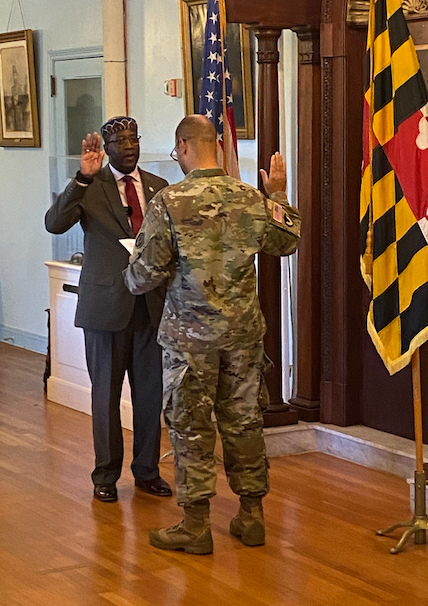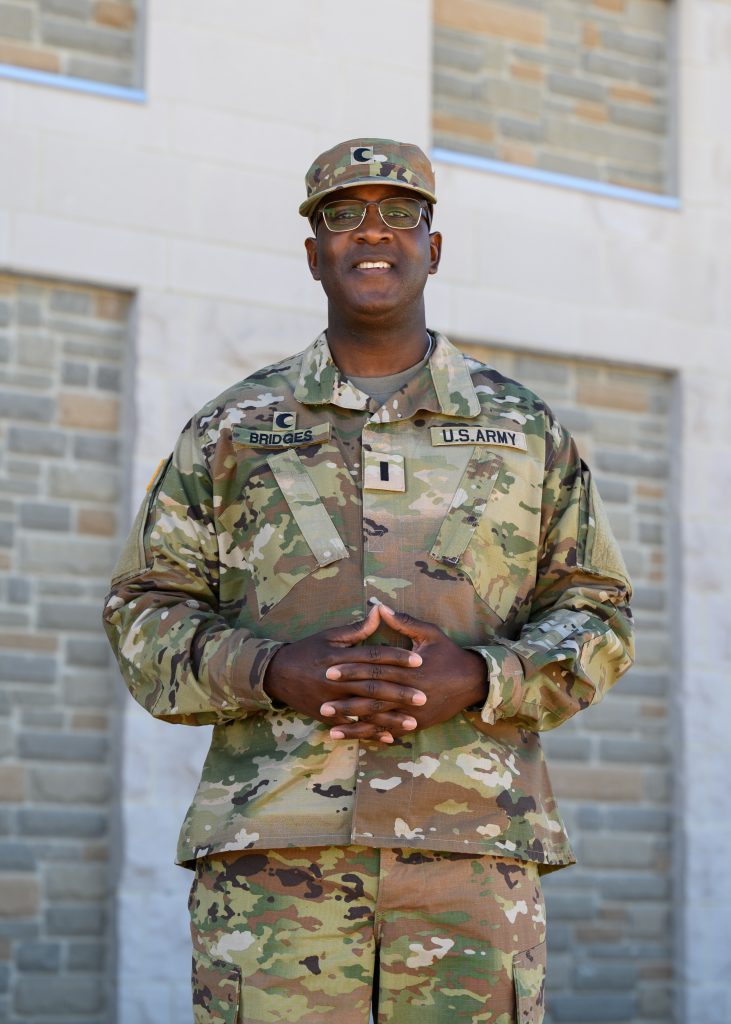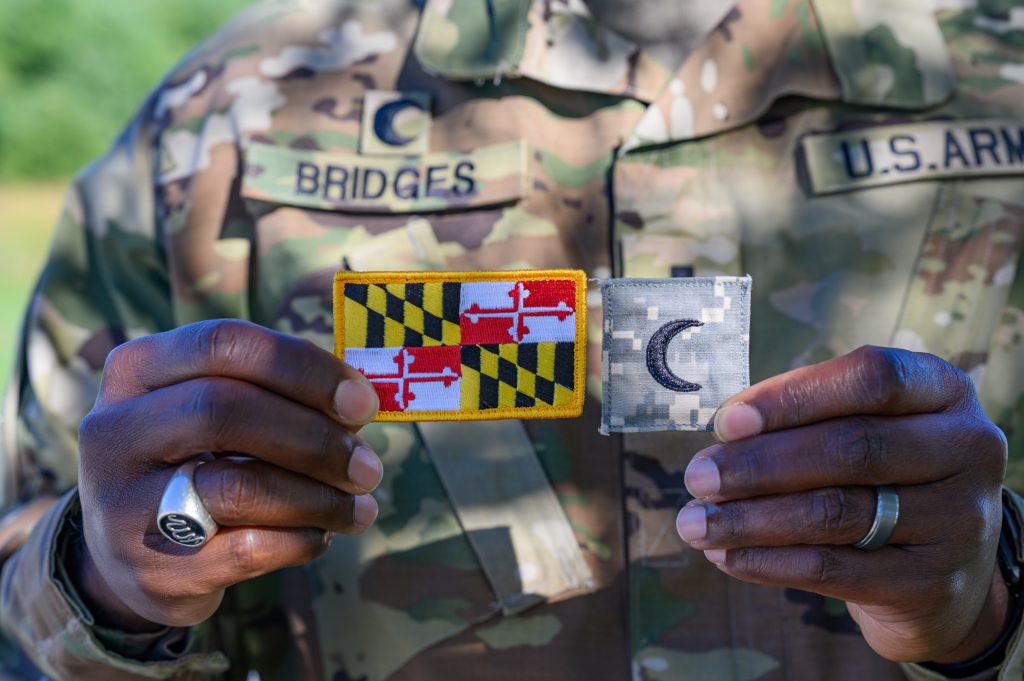Building Bridges – MDNG Commissions First Muslim Chaplain
Article by U.S. Air Force Staff Sgt. Sarah M. McClanahan, Maryland National Guard Public Affairs Office
Photos by U.S. Air Force Staff Sgt. Sarah M. McClanahan, Maryland National Guard Public Affairs Office; Courtesy photos
U.S. Army 1st Lt. Edrees Bridges was commissioned into the Maryland National Guard on August 19, 2021, making MDNG history as the first chaplain of the Muslim faith and enabling the Chaplain Corps to now support a variety of faith traditions: Jewish, Muslim, and Christian.
For Bridges, a former chaplain of the Maryland Defense Force and current special agent with the U.S. Capitol Police, this opens the door for not only chaplains of Muslim faith, but also for service members to experience diversity.
 “It shows our state and our nation’s commitment to have a Chaplain Corps that’s a reflection of our military,” said Bridges. “It opens the door for other Muslim chaplains [and] for other chaplains of other faiths or spiritual traditions, which are not represented in the [MDNG].”
“It shows our state and our nation’s commitment to have a Chaplain Corps that’s a reflection of our military,” said Bridges. “It opens the door for other Muslim chaplains [and] for other chaplains of other faiths or spiritual traditions, which are not represented in the [MDNG].”
Diversity is important because it expands the reach of the MDNG’s chaplains and their ability to positively impact as many people as possible, according to U.S. Army Lt. Col. Yorlondo Wortham, state chaplain for the MDNG.
“While every chaplain is trained to assist any and every military member, each chaplain is a member of a specific faith community,” said Wortham. “[Bridges] can help us meet the needs of our Muslim Soldiers and families.”
While Bridges is the MDNG’s first Muslim chaplain, he prefers to be known as the MDNG’s first chaplain for the Muslim faith tradition. Switching the order of his title is a distinction that is important to him because he’s a chaplain first, emphasizing his people-first mentality.
“A chaplain is there for all individuals, all individuals from all walks of life,” said Bridges. “Even when they see the crescent moon on my uniform, they know that I’m going to be there for them. Regardless of their views, faith tradition, worldview, I’m a chaplain for them.”
While Bridges hopes to carry on a military legacy of caring for people, his path wasn’t initially aimed at military chaplaincy.
He began seminary, a college that prepares students to become religious leaders, in 2015 with a concentration in Islamic studies. As Bridges neared graduation, a significant event altered his trajectory as his career in law enforcement and his education collided.
While working on a security detail near Florida International University, a pedestrian bridge collapsed. Bridges noted how the police chaplain responded to the accident and aided the families and friends of those affected.
“They just had a moment of silence and it was at that particular moment when I realized that I wanted to be a chaplain,” explained Bridges. “I called my academic advisor and asked if I could change my concentration from Islamic studies to a master’s in divinity with a concentration on Islamic chaplaincy.”
 Bridges was a bit surprised by what he learned when he entered clinical pastoral education, a program sponsored by Johns Hopkins Hospital and held at Anne Arundel Medical Center in Annapolis, Maryland. He thought that the program would be all about the tools and resources he would need as a chaplain. Instead, the focus of the program was on self-reflection, something essential for religious work.
Bridges was a bit surprised by what he learned when he entered clinical pastoral education, a program sponsored by Johns Hopkins Hospital and held at Anne Arundel Medical Center in Annapolis, Maryland. He thought that the program would be all about the tools and resources he would need as a chaplain. Instead, the focus of the program was on self-reflection, something essential for religious work.
“That reflection with self during difficult times or times that I perceive as to be the best of times, [allows me to] do that with others when they are experiencing trials, tribulations, and different circumstances in their lives,” said Bridges. “Not to give them the answers, but to be a person that journeys with them through it.”

